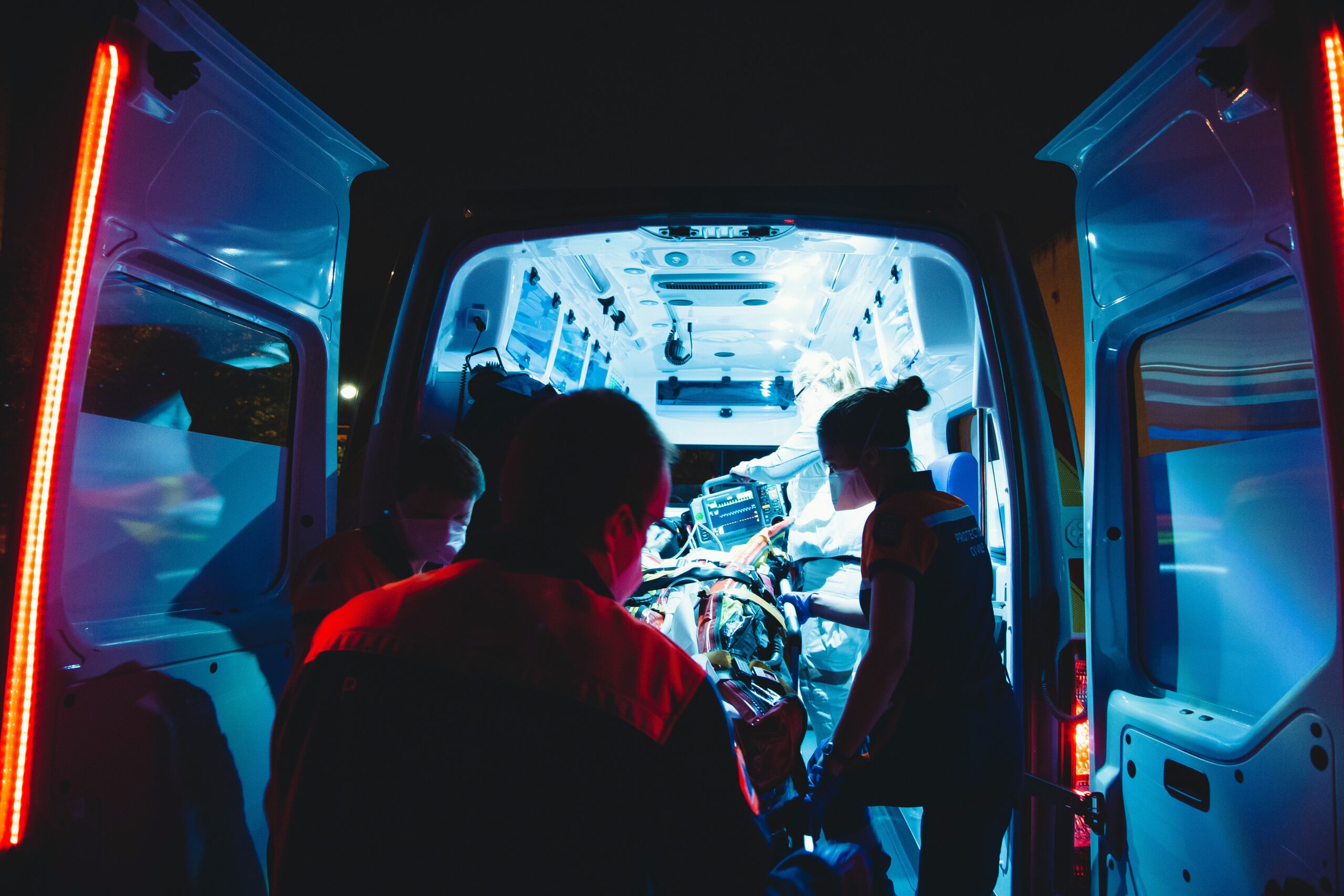
In India, as in the entire world, the ambulance service in Jaipur operates day and night to assist civilians in saving their lives. However, the provision of post-trauma care is equally vital for patients, a universally acknowledged aspect among ambulance services everywhere.
This is why, knowing about the Role of Ambulance Services in Post-Trauma Care in Jaipur is crucial for each and everyone in this world. Letting know the civilians about it is equally important for the medical establishment of that state. This is why, in this blog, we have added all the required information about The Role of Ambulance Services in Post-Trauma Care in Jaipur. If you are also here to know the same information, then read this blog to the very end.
So, let’s start-
The Role of Ambulance Services in Post-Trauma Care in Jaipur
The Role of Ambulance Services in Post-Trauma Care widely varies and extends from the stage of emergency to recovery. This is why we have inserted all the information about the Role of Ambulance Services in Post-Trauma Care in Jaipur from emergency to recovery below:
Emergency Response
- Swift Deployment: Ambulance services ensure rapid deployment to emergency scenes, providing immediate medical attention and interventions to stabilize patients.
- Critical Decision-Making: Paramedics make critical decisions on-site, administering life-saving treatments and ensuring the earliest possible initiation of care.
- Trauma Triage: Ambulance personnel use specialized protocols to assess and prioritize trauma cases, optimizing the chances of survival during critical moments.
- Advanced Life Support (ALS): Specialized ambulances equipped with ALS capabilities deliver advanced medical interventions, including cardiac support and airway management.
- Pediatric Emergency Care: Ambulance services are trained to handle pediatric emergencies, employing specialized equipment and protocols to address the unique needs of children.
It is crucial to mention that certain certifications are a requirement for being part of the emergency response team, just like having first aid training Calgary.
Pre-Hospital Care
- Immediate First Aid: Ambulance crews provide immediate first aid and stabilize patients at the scene, preventing the deterioration of their health during transportation.
- Pain Management: Specialized pre-hospital care includes effective pain management strategies, ensuring patient comfort and minimizing distress before reaching the hospital.
- Remote Area Response: Ambulance services extend pre-hospital care to remote areas, employing specialized vehicles and strategies for timely medical interventions.
- Toxicology Expertise: Ambulance personnel equipped with toxicology expertise can address poison-related emergencies, administering appropriate antidotes and treatments.
- Psychological First Aid: Specialized training enables paramedics to offer psychological first aid, supporting patients and bystanders emotionally during traumatic incidents.
Transportation and Stabilization
- Mobile Intensive Care Units (MICUs): Specialized ambulances, such as MICUs, facilitate the transportation of critically ill patients, offering a mobile extension of intensive care services.
- Ventilator Support: Ambulance services ensure the safe transportation of ventilator-dependent patients, providing continuous respiratory support during transit.
- Neonatal Transport: Specialized ambulances equipped for neonatal transport ensure the safe and secure transfer of premature or critically ill infants.
- Bariatric Services: Ambulance crews with specialized bariatric training and equipment ensure the safe transportation of obese patients, addressing unique challenges in stabilization.
- Cardiac Care Units: Ambulance services with cardiac care units offer specialized transportation for patients requiring continuous monitoring and interventions for cardiac conditions.
Communication and Coordination
- Hospital Liaison: Ambulance services maintain direct communication with receiving hospitals, facilitating seamless transitions and ensuring preparedness for incoming patients.
- Interagency Collaboration: Specialized communication protocols enable effective collaboration between ambulance services, fire departments, and law enforcement agencies during complex emergencies.
- Telemedicine Consultation: Ambulance crews can engage in real-time telemedicine consultations with emergency room physicians, obtaining guidance on complex cases.
- Disaster Response Coordination: Specialized communication systems enhance coordination during mass casualty incidents, enabling efficient resource allocation and patient distribution.
- Language Support: Ambulance services with multilingual capabilities enhance communication with diverse patient populations, ensuring accurate information exchange during emergencies.
Specialized Ambulance Services
- Air Ambulance Services: Helicopter ambulances provide rapid transport for critically ill or remote patients, offering specialized capabilities for aeromedical care.
- Stroke Response Units: Ambulance services with specialized stroke units deliver time-sensitive care, including pre-hospital stroke assessments and coordination with stroke centers.
- Mobile Stroke Units: Ambulances equipped with advanced imaging technology enable on-site stroke diagnosis and administration of thrombolytic therapy, improving outcomes.
- High-Risk Maternity Transport: Specialized ambulances cater to high-risk maternity cases, ensuring safe and timely transportation for expectant mothers with complications.
- Organ Transport Units: Ambulance services play a vital role in organ transportation, facilitating the transfer of organs for transplantation in coordination with medical teams and organizations.
Technology and Innovation
- Electronic Health Records (EHRs): Ambulance services utilize EHRs for real-time access to patient information, enhancing communication with receiving hospitals and improving continuity of care.
- Telemedicine Integration: Advanced ambulances integrate telemedicine capabilities, allowing paramedics to consult with specialists, improving diagnostic accuracy and treatment planning.
- Point-of-Care Testing: Specialized ambulances are equipped with point-of-care testing devices, enabling on-site diagnostics and facilitating early interventions based on immediate results.
- GPS Tracking: Ambulance services utilize GPS technology for real-time tracking, optimizing route planning and ensuring timely arrivals at emergency scenes and hospitals.
- Simulation Training: Specialized training programs use simulation technology to enhance paramedic skills, ensuring readiness for diverse and complex emergency scenarios.
Post-Trauma Support
- Trauma-Informed Care: Ambulance personnel receive training in trauma-informed care, offering compassionate support to patients and families during the post-trauma recovery process.
- Follow-Up Services: Specialized ambulances may offer follow-up services, checking on patients after the initial emergency, providing resources, and ensuring continuity of care.
- Mental Health First Aid: Ambulance services are equipped with mental health first aid training, offering immediate support and resources for individuals experiencing psychological distress post-trauma.
- Rehabilitation Referrals: Paramedics play a role in connecting patients with appropriate rehabilitation services, supporting recovery and addressing long-term health needs.
- Community Resources: Ambulance services collaborate with community resources to provide post-trauma support, linking patients to social services and support groups for sustained recovery.
Conclusion
In conclusion, the vital role of ambulance services in Jaipur for post-trauma care is pivotal in bridging the critical gap between emergencies and recovery. From immediate response and specialized interventions to seamless coordination and innovative technologies, ambulance services stand as indispensable guardians, ensuring swift and comprehensive support for patients on their journey from trauma to healing and rehabilitation.








